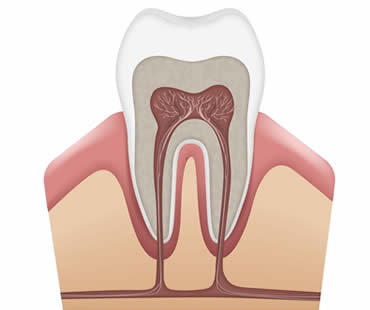
The Importance of a General Dentist: The Key to Unlocking Your Best Smile
The Importance of Oral Health
When it comes to maintaining overall health, many people tend to overlook the importance of oral health. However, the truth is that our oral health is closely tied to our overall well-being. Poor oral health can lead to a variety of medical conditions, including heart disease, diabetes, and even some forms of cancer.
In addition to physical health concerns, poor oral hygiene can also have social and emotional consequences. People with chronic bad breath or visible dental problems may feel self-conscious in social situations or have difficulty finding employment.
The Role of General Dentist in Maintaining Oral Health
Fortunately, the general dentist plays a key role in helping us maintain good oral health. A general dentist is a licensed dental professional who provides preventative care such as regular checkups and cleanings as well as restorative procedures such as fillings and root canals.
The general dentist also has an important role in educating patients about proper oral hygiene techniques and providing dietary recommendations for optimal oral health. They are often the first line of defense against common dental problems such as cavities and gum disease.
Overall, visiting the general dentist on a regular basis is essential for maintaining good oral hygiene and preventing more serious medical conditions down the road. So if you haven’t visited your general dentist lately, it’s time to make an appointment!
Regular Checkups and Cleanings
The Importance of Regular Dental Checkups
Many people believe that dental checkups are only necessary when they experience pain or discomfort in their teeth. However, regular dental checkups are essential for maintaining good oral health.
A general dentist can examine your teeth, gums, and mouth for signs of tooth decay, gum disease, or other oral health issues before they become serious problems. Regular checkups allow the dentist to detect any issues early on and address them before they worsen.
The Benefits of Professional Cleanings
Professional cleanings performed by a general dentist can provide many benefits to your oral health. Even with regular brushing and flossing at home, there may be areas in your mouth that are difficult to reach or clean properly.
Professional cleanings use specialized tools to remove plaque buildup and tartar that cannot be removed through regular brushing and flossing alone. This helps prevent potential problems such as cavities or gum disease.
Early Detection and Prevention of Dental Problems
Many dental problems can be prevented with regular visits to a general dentist. By detecting potential problems early on during routine checkups, the dentist can address them before they become more severe or difficult to treat. For example, a small cavity can often be treated with a simple filling if detected early enough, whereas neglecting it could lead to more significant decay requiring more extensive procedures like crowns or root canal therapy.
Making regular appointments with a general dentist for both checkups and cleanings is crucial for maintaining excellent oral health. By catching potential problems early on through routine monitoring by your dentist, you can avoid much larger issues that require more time-consuming treatments later down the road.
Restorative Procedures
Fillings, Crowns, and Bridges
Despite our best efforts to maintain proper oral hygiene, teeth can still become damaged or decayed over time. That’s where restorative procedures come in.
A general dentist can repair and restore your teeth with fillings, crowns, and bridges. Fillings are used to treat cavities caused by tooth decay.
Crowns are used to cover a damaged or weakened tooth to protect it from further damage. Bridges are used to replace missing teeth by connecting two crowns on either side of the gap with a false tooth in between.
Root Canals: The Infamous Procedure
The dreaded root canal – we’ve all heard horror stories about it. But the truth is that root canal therapy is a common and highly effective procedure for treating infected or inflamed pulp (the soft tissue inside your tooth).
During the procedure, your dentist will remove the infected pulp and fill the space with a special material called gutta-percha. Contrary to popular belief, root canals aren’t painful – modern anesthesia ensures that you won’t feel any discomfort during the procedure.
Tooth Extractions: When It’s Necessary
Sometimes a damaged or diseased tooth cannot be saved through restorative procedures like fillings or crowns. In these cases, extraction may be necessary to prevent further damage and infection in your mouth. Tooth extractions are also common for wisdom teeth that are causing pain or other issues as they grow in.
Overall, restorative procedures can help ensure that your oral health stays on track even if something goes wrong along the way. Your general dentist will work with you to determine which procedure is best for your specific situation and make sure that you’re comfortable throughout!
Cosmetic Dentistry: Enhancing Your Smile
Teeth Whitening: Brighten Your Smile
We all want a bright, healthy smile. Teeth whitening is a simple and effective way to remove stubborn stains caused by coffee, tea, tobacco, and aging.
General dentists can offer in-office or at-home teeth whitening treatments. In-office treatments use powerful bleaching agents that quickly and effectively whiten teeth.
At-home treatments involve custom-fitted trays used with a milder bleaching agent over several weeks. Regardless of the method chosen, teeth whitening can boost your confidence and improve your overall appearance.
Veneers: A Hollywood Smile
Veneers are thin porcelain shells that are applied to the front surface of the teeth in order to correct discoloration or misalignment issues. Veneers can also be used to conceal gaps between teeth and even repair chips and cracks in your smile.
During the procedure, your general dentist will remove a small amount of enamel from the tooth surface before bonding the veneer into place using dental cement. The result is an incredibly natural-looking tooth that will give you a bright Hollywood smile.
Invisalign: Straighten Your Teeth Without Braces
Invisalign is an alternative to traditional metal braces for people who want straighter teeth without wearing visible metal brackets or wires on their teeth. Instead of using traditional braces, Invisalign uses clear plastic aligners that gradually shift your teeth into place over time. The aligners are custom-made for each patient and designed to be worn for 20-22 hours per day throughout treatment – ideal for those who want to maintain their professional appearance while undergoing orthodontic treatment.
Cosmetic dentistry offers many benefits beyond just aesthetics; it can improve oral health by correcting alignment issues, preventing decay caused by crooked or misaligned teeth, and by boosting your self-esteem. Talk to your general dentist today to learn more about the cosmetic dentistry options available to you.
Oral Health Education
Tips for proper brushing and flossing
Maintaining good oral hygiene is essential to ensure excellent oral health. One of the easiest ways to achieve this is by brushing and flossing regularly. Dentists recommend using a soft-bristled brush and fluoride toothpaste to brush your teeth twice a day for at least two minutes each time.
To floss correctly, take about 18 inches of floss and wrap it around your index fingers on each hand. Use a back-and-forth motion to move the floss between your teeth, making sure not to snap it into your gums.
Dietary recommendations for good oral health
Another way to maintain good oral hygiene is by watching what you eat. Sugary foods and drinks can cause tooth decay, so it’s best to limit these or choose alternatives instead.
Foods that are high in calcium, such as dairy products, can help strengthen teeth. Additionally, crunchy fruits and vegetables like apples or carrots can help scrub away plaque from teeth while promoting saliva production which helps neutralize harmful acids produced by bacteria in the mouth.
It’s important to note that no matter how well you brush or how careful you are with your diet habits, visiting a general dentist regularly is still crucial for maintaining optimal oral health. They can assess the condition of your mouth thoroughly and provide guidance on how best to care for it based on your individual needs.
Specialized Treatments
While regular checkups and cleanings are important, sometimes more specialized treatments are necessary to maintain excellent oral health. Two common specialized treatments that general dentists offer are gum disease treatment and treatment for sleep apnea.
Gum Disease Treatment
Gum disease is a common dental problem that can lead to serious health issues if left untreated. The first stage of gum disease is gingivitis, which causes inflammation and bleeding of the gums.
If left untreated, it can progress to periodontitis, which can cause tooth loss and damage to the bones that support the teeth. A general dentist can provide treatment for both gingivitis and periodontitis.
Treatment options may include scaling and root planing (a deep cleaning of the teeth and gums), antibiotics, or surgery in severe cases. Regular dental visits and good oral hygiene practices can help prevent gum disease from developing or progressing.
Treatment for Sleep Apnea
Sleep apnea is a condition where a person’s breathing temporarily stops during sleep, often due to an obstruction in the airway. This condition can lead to fatigue during the day, as well as more serious health problems like high blood pressure and heart disease.
A general dentist can offer several different types of treatment for sleep apnea, depending on the severity of the condition. Options may include oral appliances (such as a mouthguard) that help keep the airway open during sleep, behavior modifications (such as weight loss or avoiding alcohol before bed), or referral to a specialist for more intensive treatments like continuous positive airway pressure (CPAP) therapy.
It’s important to address sleep apnea as soon as possible in order to avoid serious long-term consequences. A general dentist can play an important role in diagnosing and treating this condition.
Technological Advances in Dentistry
Digital X-rays and Imaging Technology
Gone are the days when traditional X-rays were the only option for dentists to assess the health of your teeth. Digital X-rays and imaging technology have revolutionized dentistry by offering a safer, more efficient, and more accurate way of diagnosing dental problems. Digital X-rays use significantly less radiation than traditional ones, making them safer for patients while ensuring that images can be viewed instantly on a computer screen.
This allows dentists to make more precise diagnoses and develop more effective treatment plans. Furthermore, digital images can be easily stored and transferred electronically, making it easier for patients to share their records with other healthcare providers.
Laser Dentistry
Laser dentistry is another technological breakthrough that has transformed the field of dentistry. Lasers can be used in a variety of dental procedures such as gum disease treatment, cavity removal, teeth whitening, and even biopsies.
Laser dentistry is less invasive than traditional methods since it involves less bleeding, pain, swelling or discomfort post-treatment. It also requires fewer visits to the dentist due to its precision in targeting only infected tissues without harming surrounding healthy parts- this means faster healing times as well!
Additionally, some laser treatments can stimulate tissue regeneration which means faster healing times with no need for additional medication or surgery. Laser treatments are still relatively new but they’re quickly becoming more popular as people realize how much easier they make oral healthcare practices.
Regular Visits to a General Dentist are Crucial
After exploring all the different ways that a general dentist contributes to your oral health, it is clear that regular check-ups and cleanings are crucial for maintaining good oral hygiene. Not only do they help prevent problems from developing, but they also give you peace of mind knowing that you’re in good hands.
When you visit your dentist regularly, they can detect and diagnose dental problems in their early stages before they become more severe and require more extensive treatment. This means saving money on treatments and avoiding painful procedures.
Preventative care through regular visits to your general dentist is key to maintaining excellent oral health, but it’s also important to practice good self-care habits such as brushing and flossing daily and eating a healthy diet. Remember, taking care of your teeth is an investment in your overall health and well-being!
Ready to transform your smile? Schedule your appointment today at our Ottawa dental office.



